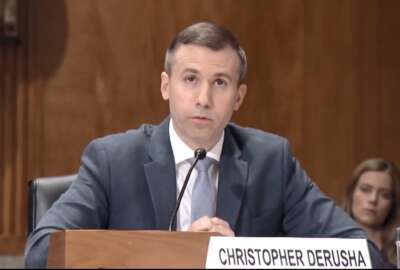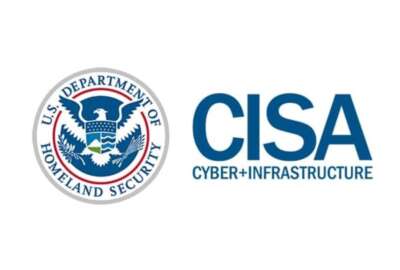Second senior cyber leader this week to exit federal service
Eric Goldstein, the executive assistant director for cybersecurity for CISA, will leave his role after three plus years in June.
Eric Goldstein, the executive assistant director for cybersecurity for the Cybersecurity and Infrastructure Security Agency, is leaving federal service after more than three years.
CISA confirmed his last day will be in June, but didn’t say exactly when. A CISA spokesperson didn’t say who would be acting in his place after Goldstein leaves. Matt Hartman serves as Goldstein’s deputy.

Goldstein joined CISA in February 2021 from the private sector where he was the head of cybersecurity policy, strategy and regulation for Goldman Sachs.
In his role at CISA, he oversaw an assortment of initiatives to protect and strengthen federal civilian agencies and the nation’s critical infrastructure against cyber threats.
CISA Director Jen Easterly praised Goldstein’s contributions over the last few years.
“I could not be prouder of the work that Eric Goldstein has done to move CISA forward as an agency. He has helped catalyze a shift across the agency to data-driven risk reduction and built an inclusive team that has enabled CISA and our partners to confront the serious cyber threats facing our country,” Easterly said in a statement. “Under Eric’s superb leadership, we pioneered new models of operational collaboration, reshaped our ability to detect and address cyber risks and shifted the balance toward building technology that is secure by design. I consider myself fortunate to be Eric’s teammate and know that he will carry his dedication to a secure and resilient nation forward in his next adventure.”
Federal cyber leaders on the move
Goldstein’s decision to leave government comes two days after Chris DeRusha, the federal chief information security officer, announced his decision to move on.
The departures of DeRusha and now Goldstein are also causing several other changes across CISA. Mike Duffy, the associate director for capacity building in the cyber division, is taking a detail to be the acting Federal CISO. On top of Duffy’s leaving, even for a short time, CISA has also seen several other senior cyber leaders head out the door, including Sean Connelly, who led the federal zero trust and Trusted Internet Connections efforts.
Among his accomplishments during his time at CISA include leading an effort to create the first ever CISA cyber strategic plan last summer, which he said will fundamentally shift the way the agency works, how it prioritizes resources and how they work with their stakeholders.
During his tenure, CISA issued seven emergency cyber directives for agencies, including one in April around Russian hackers taking advantage of a Microsoft vulnerability, to address immediate threats.
Another big focus over the last three years was the Federal Enterprise Improvement Team (FEIT), which the agency funded through a portion of the $650 million CISA received under the American Rescue Plan Act of 2021.
This was Goldstein’s second stint in government. He worked from 2013 to 2017 at CISA’s precursor agency, the National Protection and Programs Directorate, in various roles including policy advisor for Federal Network Resilience, branch chief for Cybersecurity Partnerships and Engagement, senior advisor to the assistant secretary for cybersecurity and senior counselor to the undersecretary.
CNN first reported Goldstein’s departure.
Copyright © 2025 Federal News Network. All rights reserved. This website is not intended for users located within the European Economic Area.
Jason Miller is executive editor of Federal News Network and directs news coverage on the people, policy and programs of the federal government.
Follow @jmillerWFED






